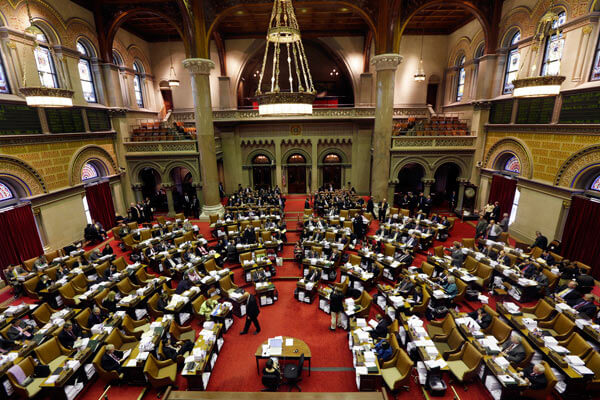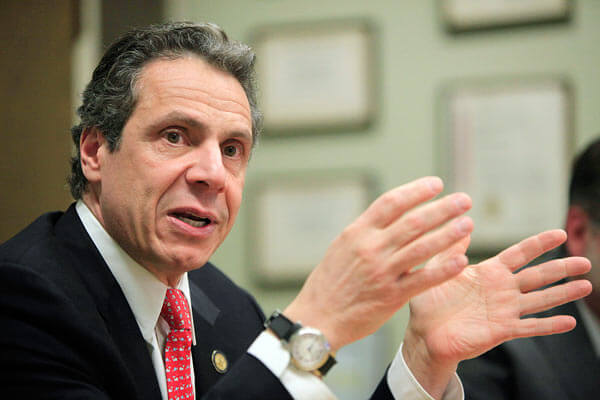By Joe Anuta
Leaders in Albany lauded the third on-time budget passed in a row last month, but Queens lawmakers expressed reservations about the bill.
“When I took office more than two years ago, New York was at a crossroads, with families and businesses leaving our state and a government that had lost the trust and confidence of the people,” Gov. Andrew Cuomo said in a statement when he announced the completion of the budget last Friday. “Year after year the budgets were late and the entire process had become a symbol for the dysfunction and chaos of Albany.”
Cuomo and majority leaders in the state Senate and state Assembly touted items in the $141.3 billion budget that included new tax cuts for small businesses, tax cuts for middle-class families, education reforms and an increase in the minimum wage to $9 per hour frm $7.25 — items that were praised by Queens lawmakers as well.
State Assemblywoman Aravella Simotas (D-Astoria) noted that the budget included an increase of $936.6 million in education spending over last year, which was included in addition to increasing aid to early childhood education programs and offer more monetary support for SUNY and CUNY students.
“Our schools are the foundation for keeping our community strong,” Simotas said. “By increasing school aid we will be able to provide our children and young adults with a quality education, hold property taxes in check, and keep the dream of a college degree alive for more working families.”
Assemblyman Phil Goldfeder (D-Far Rockaway) said new taxes defined in the budget will lock in the lowest rate for middle-class families in 60 years.
“Many hardworking, middle-class Queens families are struggling because everyday costs keep rising,” he said. “By implementing a more progressive tax structure, we can continue to keep New York affordable for millions of families statewide.”
But many Queens lawmakers also expressed reservations about the bill.
“I don’t think anybody walked away happy with this budget,” said Assemblyman Francisco Moya (D-Jackson Heights). “There were a lot of things that were missing or watered down.”
Moya is the author of the state DREAM Act, which would unlock grant money for undocumented immigrants they could use to pay for higher education.
It was not included in the final document.
Democrats also expressed disappointment that the $9-an-hour minimum wage was not pegged to inflation, although Senate Republicans did not want the measure, arguing that it could create uncertainty for small business owners.
Decriminalization of small amounts of marijuana and a restoration of funds to programs that aid people with developmental disabilities were also absent from the budget, according to Moya, who said the Assembly would take up many of the causes in the upcoming year.
Reach reporter Joe Anuta by e-mail at januta@cnglocal.com or by phone at 718-260-4566.





































